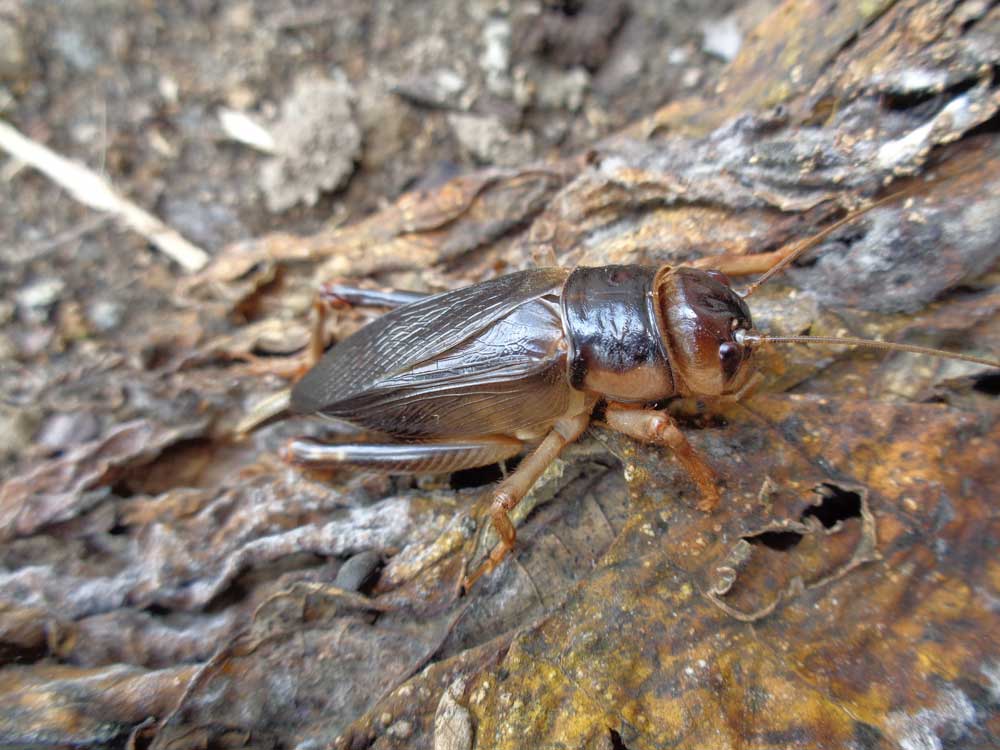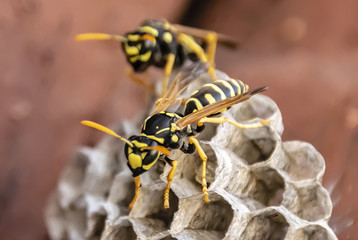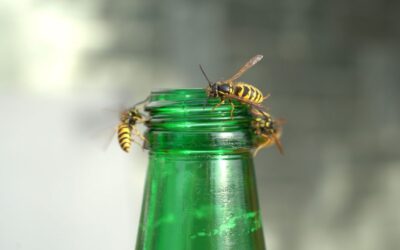Cricket Exterminator Services - RECON Pest Services

Chirping sounds keeping you awake at night? Crickets jumping around your basement or garage? At RECON Pest Services, we know how annoying these noisy insects can get. Their constant chirping might sound like nature’s music outdoors, but nobody wants a cricket concert inside their home.
Our cricket exterminator services target both the noise makers and their hiding spots. These jumping insects sneak indoors through tiny cracks, looking for warm places to spend cold Nebraska nights. Once inside, they chirp all night and multiply quickly.
Nebraska’s warm summers and cool falls create perfect conditions for cricket invasions. They breed outdoors all season, then head for your house when temperatures drop. We know exactly where they hide and when they’re most active.
Cricket Pest Control Services
We handle all types of cricket problems Nebraska homeowners face:
- House Cricket Exterminator services target the common brown crickets that chirp loudly indoors. These are the noisy ones keeping you awake with their constant singing.
- Field Cricket Control eliminates the large black crickets that invade yards and gardens. They’re bigger than house crickets and can jump impressive distances.
- Camel Cricket Treatments handle those humpbacked, silent crickets lurking in basements and crawl spaces. They don’t chirp, but their jumping scares people.
- Ground Cricket Management controls tiny crickets that live in mulch and grass but migrate indoors during dry weather or temperature changes.
- Basement Cricket Elimination focuses on damp areas where crickets breed and hide during daylight hours. These dark spaces provide a perfect cricket habitat.
- Garage Cricket Control targets crickets hiding in storage areas, under equipment, and around entry points where they first enter buildings.
- Perimeter Defense Applications create barriers around your home that stop crickets from reaching entry points in the first place.
- Indoor Treatment Programs eliminate crickets already living inside your house using targeted baits and sprays in their favorite hiding spots.
Cricket Exterminator: Dealing with Different Types of Crickets
Nebraska homes deal with several cricket species that behave differently:
- House crickets are light brown and make the loudest chirping sounds. Males chirp to attract females, and they’re most active at night when it’s quiet.
- Field crickets are large and black with powerful jumping legs. They usually stay outdoors but invade houses in large numbers during fall temperature drops.
- Camel crickets have humped backs and long legs but don’t make noise. They prefer very damp areas and can jump several feet when startled.
- Ground crickets are tiny and hard to see. They live in grass and mulch but come indoors seeking moisture during dry spells.
- Mole crickets spend most of their time underground but occasionally surface near foundations. They have front legs designed for digging.
All cricket types need moisture and hiding spots. They’re most active at night and hide during the day in cracks, behind furniture, and in storage areas.
Frequently Asked Questions
General Cricket Control
Why do crickets chirp so loudly at night?
Do crickets bite people?
What attracts crickets to houses?
How long do crickets live indoors?
Can crickets damage my house?
Treatment and Prevention
How do you get rid of crickets fast?
What's the best time to treat for crickets?
Will cricket treatments harm beneficial insects?
How long do cricket treatments last?
Can I prevent crickets naturally?
Specific Cricket Issues
Why are there so many crickets in my basement?
Do crickets mean I have other pest problems?
Can crickets jump on beds or furniture?
What's the difference between crickets and grasshoppers?
Why do I only hear crickets at night?
Why Choose RECON Pest Services
RECON knows Nebraska's pest patterns because we've been fighting local infestations for years. Our pest control company understands exactly when pests move and which areas they prefer, allowing us to target treatments for maximum effectiveness.
Our specialized treatments focus only on problem areas, not wasting time or resources on places pests ignore. This targeted approach means better results while minimizing chemical usage around your property.
Reviews
See what other companies have to say about our service. Read our customer reviews from businesses like yours.
Contact RECON Pest Services
Our treatments target these noisy pests and prevent their return by addressing entry points and attractants. Same-week appointments available across Omaha, Lincoln and surrounding areas. Contact our pest control firm today.
Blog
Learn about cricket behavior and control with expert advice from our Nebraska team. Our blog helps you understand why crickets invade and how to keep them quiet.
Wasps in Nebraska – 5 Dangerous Pests to Avoid
Wasps can be a real nuisance for homeowners in Nebraska, and with several species buzzing around, it’s no...
How to Treat a Mosquito Bite On Your Eyelid & Treat Mosquitoes in Nebraska
Ouch! Why is my eye so itchy? A mosquito bite on your eyelid can feel like a major annoyance, but don’t...
Delayed Wasp Sting Reactions – Lincoln & Omaha Wasp Control
Ouch, was that a wasp? Have you ever been stung by a wasp and found yourself dealing with a delayed...







